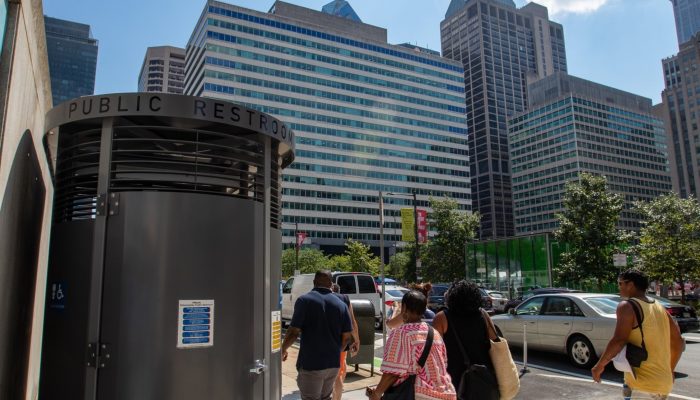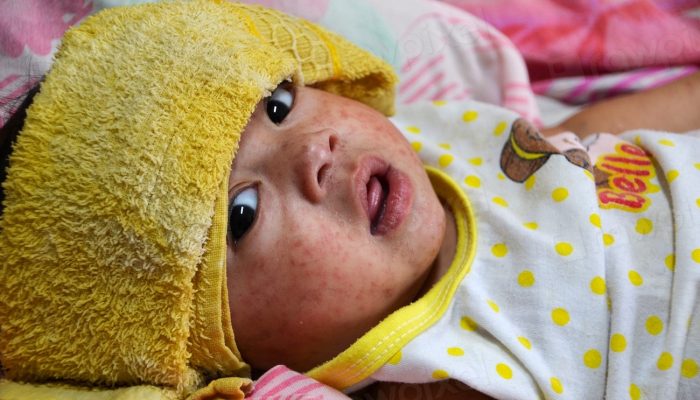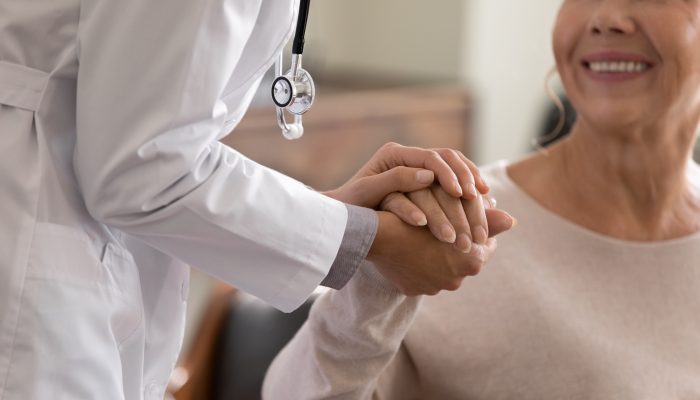The City’s “Philly Phlush” pilot aims to provide safe and clean public restrooms in select Philadelphia neighborhoods. There are currently two Philly Phlush locations in Philadelphia. Funding for the pilot will support the expansion of the pilot in other neighborhoods through summer 2026.
Here are some of the most common questions asked about the pilot.
What is the expected cost to purchase, install, and operate the public restrooms?
The public restroom pilot is included in the Mayor’s Five-Year plan with a budget of $656,864 annually. This supports:
- Purchase and installation of multiple units over the course of five years.
- Three fulltime public restroom specialists to maintain the units.
- Supplies, equipment, and repairs for the units.
How is the City determining which neighborhood will come next?
Locations are decided primarily by the need for public restrooms and the need for harm reduction interventions to address substance use, homelessness, and racial equity. Once a neighborhood is determined, we will start our community engagement process to allow residents to share their concerns about an exact site selection and inform the operation of the unit.
How is the final decision made for where the public restroom is installed in each neighborhood?
Our community engagement process involves neighborhood groups and stakeholders at critical decision points. However, certain technical constraints limit where the Philly Phlush can be installed, including:
- Connections to water, sewage, and electricity utilities.
- The size of the space available.
- Land ownership.
- The expected cost of installation.
- Regulations on the proximity to intersections and the curb.
The City balances community feedback with these technical constraints.
How will the City measure success for the public restroom pilot?
The City tracks our response time for service requests, as well as the frequency of repairs, cleanings, and restocking of supplies by our public restroom specialists. We also track the specialists’ referrals for shelter, food, clothing, and medical or drug treatment. Through our community engagement process, we hope to learn from residents what a successful public restroom pilot would mean to them. This feedback will inform how they City defines and tracks success over time.
How has the City considered safety in its initial planning efforts?
Safety features are included in the design of the public restroom model, including angled grating at the bottom and top of the unit to allow someone outside the unit to have a conversation with someone inside the unit. The grating is angled in such a way that doesn’t compromise privacy, but it does allow some visibility so staff or police officers can observe the number of users inside for safety and security purposes.
The City has also involved the Police Department in planning conversations including a safety analysis for proposed sites. The site criteria checklist includes considerations like good lighting and proximity to a Police Department route. During the community engagement process for each site, we also solicit feedback about what factors would make residents feel safe using the public restroom.
Why can’t the public restrooms be open 24/7?
At this time, we do not have the staffing resources to be open 24/7. We also recognize that this pilot is not enough to meet the city-wide need for public restrooms. However, we hope that if this pilot is successful, we can make the case for expansion.
What happens if someone does not to leave the unit?
Public restroom specialists lock the Philly Phlush when it closes for the day. There is no opportunity for someone to sleep inside the unit overnight. If someone is unable or unwilling to leave the unit, staff assess the details and severity of the situation. Staff are trained to respond with first aid, overdose reversal, and de-escalation through a trauma-informed lens. If needed, the specialists call the 24-Hour Philadelphia Crisis Line at 988 to dispatch the Adult Mobile Crisis Team. In emergency situations where someone is unconscious, the specialists call 911.
If specialists are not present, there is a sign on the unit to encourage individuals to call 911 for medical emergencies. There is a supply of naloxone (Narcan®) inside each public restroom. First responders have a key to each unit.
Other questions?
If you have other questions about the City’s public restroom pilot, call 311 or email publicrestooms@phila.gov.




